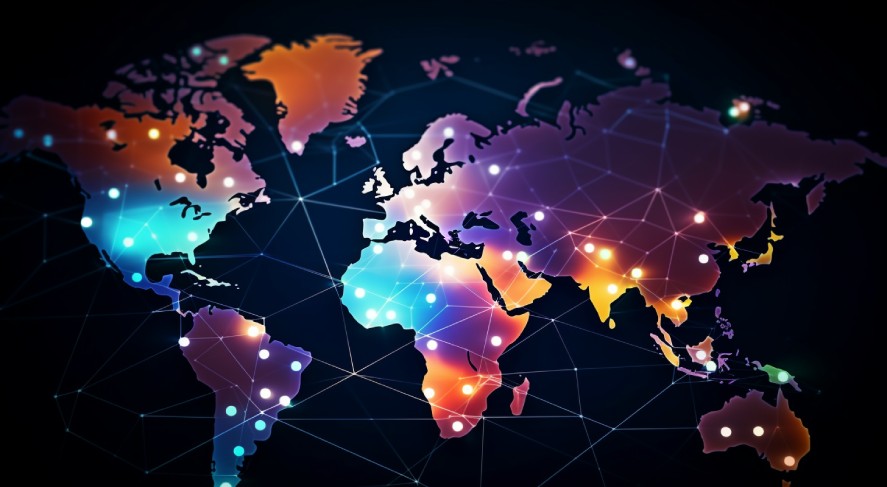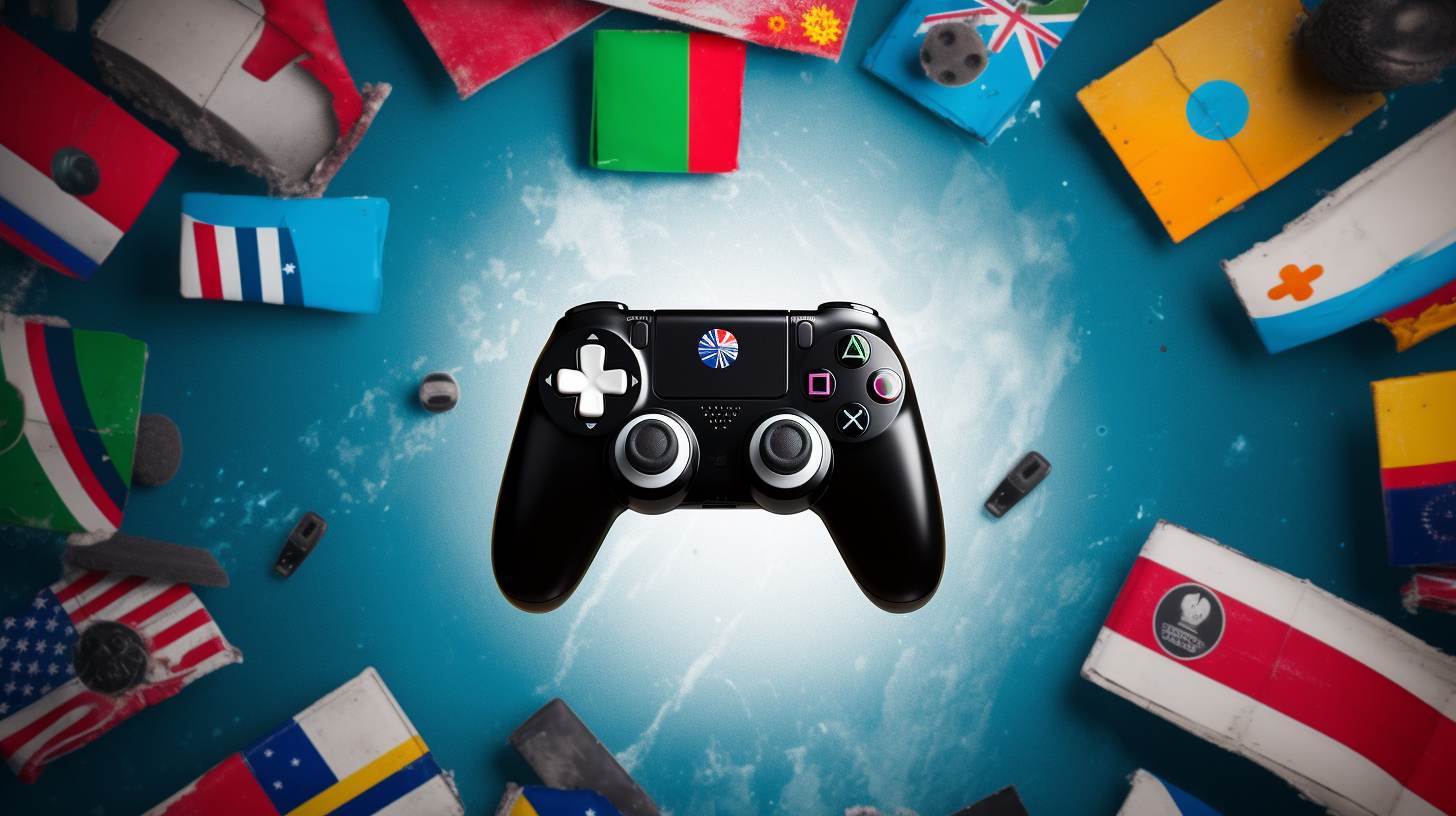Game localization and publishing are crucial factors that determine the success of a video game.
Game localization platforms have made it easier for game developers to reach international markets by providing multilingual support. With the rapidly expanding gaming industry, game publishers must invest in localization to appeal to a broader audience.
This article will explore the exciting world of game localization and publishing and how it can boost your game’s visibility and revenue!
The World of Game Publishing
Game publishing is a complex and intricate process that involves more than just game production and distribution. It encompasses all stages of the game development lifecycle, from game design to game monetization and revenue generation.
In today’s global gaming industry, game publishing has become an essential factor that can make or break a game’s success.
Game promotion and game marketing have become more critical in an era where indie game marketing has become more prevalent. Indie developers need the help of game publishers equipped with game localization software and localization services pricing to push their games into different markets with different languages and cultures.

Game publishers also leverage game localization to boost their revenue by increasing their game’s visibility and game sales in different countries. They understand that localization efforts make the game more accessible to different kinds of gamers, and they can grow a loyal community in new markets.
In conclusion, game publishing is a vital component of game development that takes care of all the critical phases, such as game distribution and game revenue generation.
What is Game Localization?
Game localization is the process of adapting a video game to a target audience’s specific language, culture, and regional preferences. It involves modifying various game elements, such as graphics, audio, text, and user interface, to suit players’ cultural and linguistic nuances worldwide.
Type of Game Localization
There are several types of game localization, including:
- Language Localization: involves translating the game content into different languages.
- Cultural Localization: entails modifying the game content to appeal to specific cultural preferences.
- Regional Localization: involves adapting the game to match the regional regulations, standards, and requirements.
- Technical Localization: involves tweaking the game to work seamlessly with various technical platforms.
- Legal Localization: entails modifying the game content to comply with different countries’ legal regulations.
Other Terms Related To Game Localization
| Game Localization Term | Description | Focus |
|---|---|---|
| Game Localization | Adapting a game to a specific locale or market by translating text, graphics, and other content and making cultural adaptations. | Linguistic, cultural, and technical considerations. |
| Game Translation | Translating in-game text and dialogue from one language to another. | Adapting text to fit space constraints, while ensuring accuracy. |
| Game Globalization | Adapting a game to be compatible with a global audience by making technical adaptations and adapting content to be culturally appropriate. | Technical and cultural adaptations for a global audience. |
| Game Culturalization | Adapting a game to a specific culture or market by making changes to the content and adapting technical aspects. | Cultural adaptations for a specific audience. |
Video Game Localization: Advantages & Disadvantages
So, why do you need game localization?

Game localization is an important aspect of the gaming industry that can greatly benefit game developers and publishers.
Game Localization Advantages
Here are some game localization benefits that you should know.
- Increased revenue: By localizing your game, you can reach a larger audience and generate more revenue.
- Improves player experience: Localization eliminates language barriers, making the game more enjoyable for players.
- Better market penetration: By targeting different regions, you can expand your market reach, opening up opportunities for further growth.
- Builds brand loyalty: Localization can create a sense of investment in the brand, leading to increased player retention and loyalty.
Game Localization Disadvantages
Whether you’re working with game localization experts or beginners, it’s also worth noting the disadvantages of game localization.
- Increased costs: Game localization can be costly, especially if it involves complex languages or cultural adaptations.
- Time-consuming: Localization can take a lot of time, especially if the game requires a lot of translation and adaptation.
- Difficulties maintaining consistency: Ensuring consistency across all localized versions can be challenging, especially when dealing with multiple languages and cultural contexts.
- Localization mistakes: Poorly executed localization can lead to unintended cultural misunderstandings or even offense, causing serious PR issues.
Game localization technology has come a long way, and there are now many game localization tips and experts to choose from.
Developers can utilize game localization technology to automatically scan games for localization needs or hire translation experts to handle text translation. In contrast, the team handles the other aspects of the game localization solutions or maintains the current localization process.
Game Localization Costs
When it comes to game localization, the cost is understandably a concern for many developers.
However, it’s important to remember that the investment you put into localization can greatly impact the success of your game in global markets.
On average, you can expect to pay anywhere from $0.04 to $0.30 per word for professional translation services. The game localization pricing can vary greatly depending on factors such as the size of the game, the number of languages being translated into, and the complexity of the content.
Top 8 Game Localization Companies
When it comes to expanding your game’s reach, game localization services become a crucial part of the game development process. These services help translate your game into multiple languages and consider the cultural aspects that help make the game more appealing to various regions.

Here are the top 8 game localization companies that offer the best game localization tools, software, and services.
1. Alconost
Alconost has been providing top-quality game translation services for years. They offer a wide range of localization services, such as game localization, app localization, subtitles, and voice-overs.
Their pricing starts from $0.0167 per source character. It’s reasonable and very transparent, making it easy for game developers to budget for their localization needs.
2. BLEND Localization
BLEND Localization offers translation and localization services for game platforms such as consoles, PCs, and mobile games. They have a dedicated team of in-house translators and advanced localization tools for games to ensure that every game is properly localized, maintaining its original appeal.
They offer pricing packages that are affordable and customizable to cater to different project needs.
3. Tomedes
Tomedes is one of the top-tier translation companies with a well-established reputation for exceptional game localization services. They provide a wide range of language services such as website localization, mobile app translation, and game localization.
They use advanced translation tools and software that make the translation process a lot faster and more efficient. Their pricing is flexible and tailored to each project’s requirements.
4. Pangea
Pangea is another professional translation company that game developers can depend on for their game localization needs. They have a dedicated team of project managers, professional translators, and localization experts with years of experience in the gaming industry.
They offer affordable game localization pricing, which is negotiable depending on the project’s scope and requirements.
5. Andovar
Andovar is a reputable translation company that provides comprehensive game localization services. They handle all aspects of game translation, including voice-over, dubbing, and subtitling services.
They leverage advanced game localization tools and cloud-based translation software to ensure the timely delivery of high-quality localization services. Their pricing is competitive, with reasonable rates for different language combinations.
6. Level Up Translation
Level Up Translation is a professional game localization company with a team of skilled translators and localization experts that specialize in providing game translation services. They offer affordable pricing packages that cater to a wide range of project needs.
They use advanced game localization tools that help streamline the translation process, leading to faster and more precise localization.
7. Localize Lab
Localize Lab is a game localization company that provides top-notch game translation services. They use cutting-edge translation tools and software to deliver quality translation services that meet the gaming industry’s best practices.
They offer reasonable pricing ($0.10 per word) tailored to each project’s requirements and specifications.
8. Localize Direct
Localize Direct offers game localization solutions in over 50 languages with easy-to-use tools and software. They have a team of dedicated project managers and translators who specialize in game translation services.
By investing in localization for games, developers can focus on their core business while leaving the translation work to the experts. With these companies, game developers can expect top-notch localization strategies and services that enhance their game’s global appeal.
Game Localization Process
Localization is a crucial step in the game development process that ensures your game is tailored to different languages, cultures, and regions. The process involves adapting your game’s content, including its text, audio, visual elements, and user interface, to the local market.

Here are the steps involved in the game localization process:
1. Planning
This step involves identifying the target markets and languages, understanding the cultural nuances, and assessing the game’s content for potential cultural, legal, or regulatory issues.
Having a clear plan and budget for the localization process is important!
2. Text extraction
The next step is to extract the game’s text using a localization kit that includes all the game’s text strings.
This text is imported into a Translation Management System (TMS) that manages the localization process. The text can be translated using either manual or AI/automated processes.
3. Translation & Localization
In this step, the text is translated into the target languages using either manual or AI-powered localization tools. AI translation tools, such as neural machine translation and natural language processing localization, can create accurate translations quickly and efficiently.
4. Localization Quality Assurance (LQA)
The LQA process involves testing the localized game for linguistic, cultural, and functional quality. This step ensures that the translated text fits within the game’s user interface, graphics, and other visual elements.
The process can be done either manually or using localization automation tools.
5. Marketing and packaging
The game’s marketing and packaging materials, such as the game description, screenshots, and trailers, need to be localized to attract players in different regions.
This step involves adapting the game’s marketing messages to the target audience using localization best practices.
6. Post-release support
It’s important to provide ongoing support to your game’s players in different languages and regions.
This involves providing technical support and game updates, as well as addressing any localization issues that arise. Effective localization management is key to ensuring the success of your game in global markets.
AI in Game Localization
The use of AI in game development and localization is becoming increasingly popular. This technology has revolutionized the way games are translated and localized into multiple languages.
AI localization tools are capable of processing large volumes of content, including text, audio, and visual elements, and can easily identify the language used in the content. They also provide accurate real-time translations, saving time and cost compared to manual translation.

In addition, AI for multilingual games is a game-changer, as it enables developers to create games that can reach an international audience without human translators. Localization AI tools like Google Translate, TranslateAI, and Microsoft Azure offer solutions to address language barriers, which is essential in the current globalized gaming industry.
Game AI translation is another area where AI is making a significant impact. With game AI translation, the game is capable of seeking out appropriate context and content-based translations for various languages in real time. This provides the user with a seamless experience and boosts the game’s engagement.
Challenges of Game Localization
Multilingual game development plays a significant role in ensuring that gaming products are well-received in markets around the globe. However, game localization is not an easy task.
The main challenge of game localization is game language translation.
Unlike regular texts, games have interactive elements that require proper timing. A direct translation could result in nonsensical phrases or incorrect word choices, causing severe implications for a game’s marketability.

Moreover, to localize games, you need to understand cultural adaptation, which is not limited to mere translation. Adapting content for a new market involves several factors such as censorship laws and restrictions, cultural sensitivities, and compliance with local regulations.
Game translation software has been developed to address game localization’s specific linguistic and cultural needs. But these are not the sole solution.
Automated game localization may employ machine learning localization where computers use AI to learn and analyzes phrases commonly used in various cultures to help make translation smoother. However, these methods still are not yet sophisticated to match human output.
In conclusion, game localization may seem formidable, but the benefits of creating a multilingual game are undeniable. It adds more players to the market, builds communities, and boosts revenue and game ranking.
SEO for Game Publishing and Localization
Ensuring your game stands out is important in a world where games are released daily.
This is where Game SEO (Search Engine Optimization) comes in. It’s the process of optimizing your game website to increase visibility and traffic through search engines like Google, Bing, and Yahoo.
When it comes to a game website, the game’s metadata plays a critical role in the website’s visibility and ranking on search engines. It enables search engine crawlers to understand the game’s content and purpose, which translates to better visibility in search results pages.

Gaming SEO is all about using the right game keywords, metadata, and game description that highlight the unique features of your game.
Game keywords are specific words or phrases that relate to your game and are commonly searched on the internet. A catchy and concise game description that highlights the game’s unique features and gameplay can make a massive difference.
Finally, game tags are a way to categorize your game and make it more discoverable across gaming platforms. These tags should be used within the game metadata to highlight the game’s niche, genre, and gameplay features.
Conclusion
We have seen the importance of game localization and publishing in boosting a game’s visibility and revenue.
There are countless nuances to localizing a game hoping to draw attention in an international setting. Therefore, proper market research, bilingual team members, implementation of cultural elements, and more should be taken into account!
We can expect to see more developments in game publishing and localization in the future. So let creativity guide you as you endeavor to reach a global audience through fun and innovative games that offer enjoyment on an international scale.

